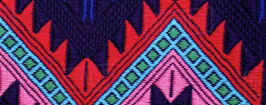



Our lives are written on our bodies. Sisters!
Women living with HIV who are leaders in the AIDS movement in their communities in Malawi came together for the start of a four-day workshop organized by JASS. They started by creating startling and beautiful body maps. They did it without any artists to help. In groups of five, the women started by outlining their bodies on large sheets of paper. Each woman was drawn by the other women in the group. People stayed in their small groups to do this, sharing magic markers and other art materials. Through a series of imaginative exercises they added parts to the outline of their bodies. Then they added words, symbols, and pictures relating to their health, their history, their points of personal power, and their life goals. In this way, each woman recorded and shared her unique story of living with HIV or just of being. This was both a serious and playful process. (The Maps were taped up on the wall and enabled us to claim the workshop space as our own.)
“This picture and this project tell the story of my life: the hurts, pains, burns and the various opportunistic diseases are all written on my body. But it also tells the story of victory,” ~ Doreen
Body mapping helped the women to make visible that which ordinarily is invisible to others and, sometimes, invisible to themselves. The process created a safe space where each woman spoke openly about her journey with HIV and other struggles. Women were also offered support from those who best understand their situation: other women living with HIV. We wove movement building into this artistic process by offering opportunities for the women to discuss their health in the context of the stories told in their body maps, and the need to organize and mobilize to form a bigger movement to demand, fight back and claim their citizenship. It’s difficult to fight back without hope. Through the mapping process and the discussions, one could see nuggets of hope surface. Although it brought up some bad memories and fears, the process was therapeutic and beautiful.
This morning, the collective organizing, mutual responsibility, and principle of sisterhood were reinforced by each participant taking on the responsibility of being another participant’s ‘guardian angel’ throughout the workshop. Standing in a circle, with no front or back, with no leader or follower, with no distinction between the participant and workshop facilitator but as women, we realized that however different our journeys, experiences, or possibilities in life, we are united in our common experiences as women who have vaginas.
We reminded each other today that this is a meeting where every woman has the right to life, protection, safety, dignity, and respect, irrespective of class, educational background, ethnicity, religion, sexual orientation or preference, and any other distinction. It was therefore hoped that each participant would leave with an awareness of their basic human rights and how to assert these rights, having shared an opportunity to learn about, claim and contribute to the women’s movement.
Since trust and confidentiality are critical at this meeting, participants were asked to reflect on and answer this question, “If you had a secret that you wanted to share, what kind of person would you share it with?” Some said that they would never share a secret but we agreed that life involves risk taking and we have to learn to take risks and to trust if we are to build a movement. At the end of the discussion, it was agreed that in order to share a secret, a person should be trustworthy, honest, non-judgmental, patient, caring, respectful, and understanding. We were all asked to embrace these qualities, and be the kind of person we would confide in.
During our discussion, sex workers were accused of being ‘bad women’ because they do not behave the way society expects ‘good women’ to. We paused and engaged in a conversation on what it really means to be a ‘good’ woman? (This happened in the last meeting too.) How easy is it for any woman to live up to society’s expectations? Who has the power to set these expectations? Should women strive to meet these expectations, even when they are oppressive and limit them from realizing their full potential? How do sex workers perceive themselves? These are some of the questions that the participants sought to answer. We discussed the dangers of labeling, self perception, and self empowerment. As participants explored the societal and internalized perceptions of what ‘good’ and ‘bad’ women are, they were able to identify the impact these have on them, as well as the ways they use these perceptions to discriminate against others. We made it clear that if we continue to divide women into good and bad, we shall not move together as women fighting for the same thing. A movement can’t be built on stereotypes.
As I am writing the participants are sharing their experiences regarding how they used the knowledge they acquired during in the last workshop and how they are building movements from where they are. The experiences are amazing, and powerful…a moment for JASS to be proud.
Part one of a four part series on JASS in Malawi. Next – Malawian women’s stories may surprise you!